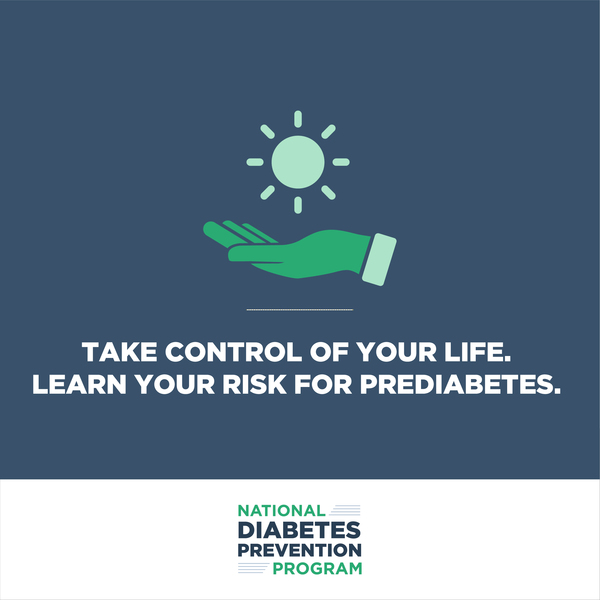In Tillamook County, more than one in every ten people live with type 2 diabetes. Similar to other local, state, national and even global trends, type 2 diabetes rates are increasing at an alarming rate. Based on national data, one in every three people is at risk for developing prediabetes and 90% of them do not even know it. According to the Oregon Medical Association, if left unaddressed, there is a 15-30% chance an individual with prediabetes will develop type 2 diabetes within five years.
The good news is that prediabetes CAN be reversed, and the same steps for reversing prediabetes can greatly improve disease management for people who already have type 2 diabetes. What can you do? Here are some steps you can follow to take charge of your health:
1) Take the “Do I have prediabetes” risk test at https://doihaveprediabetes.org/ and schedule an appointment with your care provider if your score is 5 or higher.
2) Attend the upcoming Diabetes Prevention Program (DPP) orientation, scheduled for October 29th, noon-1 pm, at the Tillamook YMCA, 610 Stillwell Ave.  Participants will take the prediabetes risk test and learn how they can take part in the year-long program. The Tillamook YMCA offers DPP locally free of charge, which is made possible through a partnership between the YMCA, Tillamook County Community Health Centers, Columbia Pacific CCO and the Oregon Wellness Network.
Participants will take the prediabetes risk test and learn how they can take part in the year-long program. The Tillamook YMCA offers DPP locally free of charge, which is made possible through a partnership between the YMCA, Tillamook County Community Health Centers, Columbia Pacific CCO and the Oregon Wellness Network.
3) Schedule an annual well visit with your primary care provider and ask to find out your risk for type 2 diabetes. A simple blood test, called an A1C, can be performed that will show average blood glucose (or blood sugar) levels over the past three months. Your healthcare provider may use your A1C to diagnose prediabetes or diabetes and to monitor your blood sugars over time. Most insurance plans cover the A1C test for individuals at risk of diabetes and prediabetes. Risk factors include having had gestational diabetes while pregnant, family history of type 2 diabetes, being overweight, having high blood pressure, and/or being physically inactive. Your physician can also refer you to a Registered Dietitian or a Certified Diabetes Educator, who can help you learn ways to use nutrition and lifestyle techniques to positively impact your health and blood sugar balance.
4) Begin to track and modify lifestyle habits, such as becoming more physically active, eating healthier, getting enough sleep and cutting out tobacco. These have been shown to drastically reduce risk for type 2 diabetes as well as improve disease management in people who already have it.  Additionally, losing 5-7% of one’s body weight has also been shown to significantly reduce risk for type 2 diabetes. For someone who weighs 200 lbs., for example, that would mean losing 10-14 lbs.
Additionally, losing 5-7% of one’s body weight has also been shown to significantly reduce risk for type 2 diabetes. For someone who weighs 200 lbs., for example, that would mean losing 10-14 lbs.
5) Share your story. Talk to others about your health and seek out ways to make health behavior changes that will work for you. Ask family members, friends and co-workers to support you (and each other!) in efforts to improve lifestyle habits. Changes are made easier when we do them with others.
6) Know where to go. Keep your eyes and ears open to community programs, classes and resources that you can take advantage of to support your health. From Wellness Walking Groups to Cooking Matters Classes, there are many free, local activities and programs that support healthier lifestyles. Visit tillamookcountyhealthmatters.org or follow Tillamook County Wellness on Facebook, Instagram and Twitter for inspiration and ideas.
7) Ask for what you need. In Oregon, CCOs provide insurance coverage and more flexible healthcare funding for members on the Oregon Health Plan. If access to care or other challenges prevent you from being your healthiest self, the Columbia Pacific CCO wants to hear from you. Consider attending the Columbia Pacific CCO’s upcoming event, October 24th, 4:30-6:00 pm, at the OSU Extension/Partners for Rural Innovation Building located across from the Tillamook County Fairgrounds on Third Street. Attendees will learn about and get a chance to give input on plans for improving local services to support community health. Childcare, interpretation and transportation will be available by request. Contact knopfn@careoregon.org for more information.

